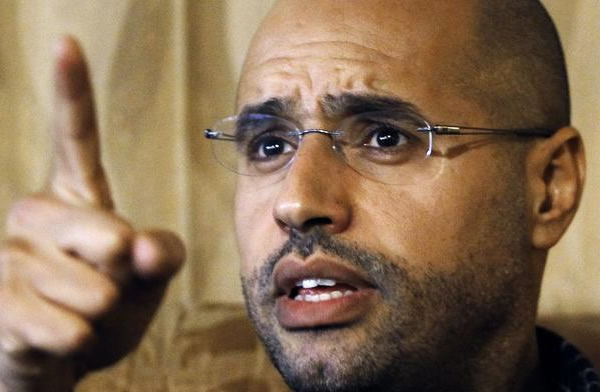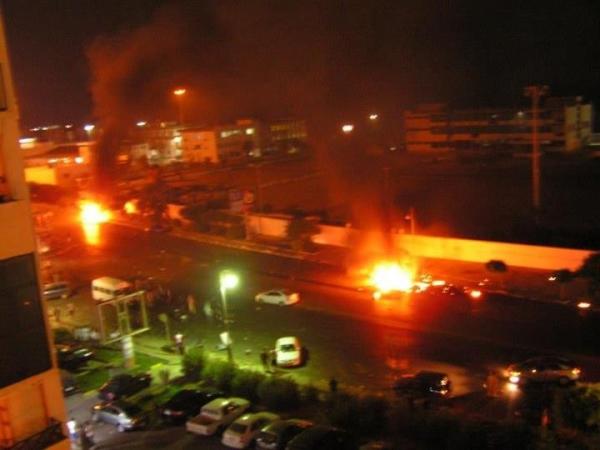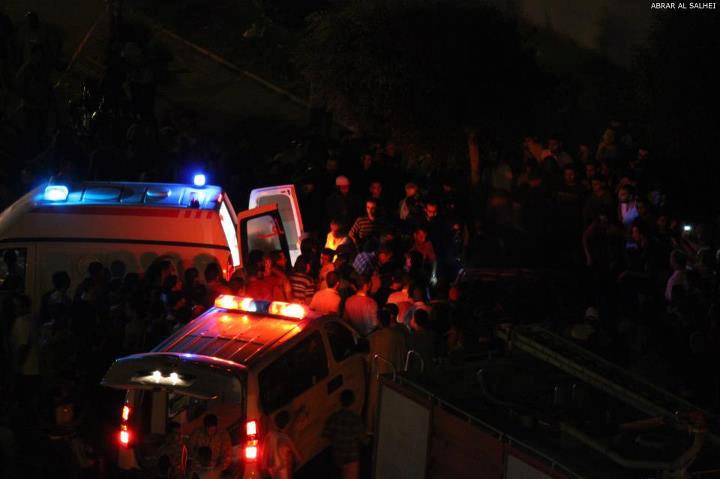By George Grant.

London, 19 August:
First Deputy Prime Minister Mustafa Abushagur has denied reports that Saif Qaddafi is to be put on . . .[restrict]trial next month in Zintan without involvement from the International Criminal Court (ICC).
In an article published yesterday evening, Britain’s Sunday Telegraph quoted an official in the prosecutor-general’s office as saying that the decision over where, when and how to try the son of the late dictator had now been made.
“Libya’s newly-elected government intends to put Saif al-Islam Gaddafi on trial next month in the mountain town of Zintan”, the report claimed, adding that “Libya’s prosecutor has made clear that the ICC will play no role in the trial.”
Overlooking the fact that Libya, or more precisely the National Congress, has not yet elected a new government, the current deputy prime minister expressed his surprise upon being informed of his government’s apparent decision.
“Discussions are ongoing, but no decision has been made”, Abushagur told the Libya Herald this morning, Sunday.
“There has been no agreement to hold the trial in Zintan, and there has been no agreement to hold the trial next month”.
The deputy prime minister also rebutted the suggestion that the Libyan government planned to hold the trial independent of any involvement from the ICC.
“We would like the ICC to be involved”, he said. “We want this trial to be as fair as possible”.
Abushagur said he had not been able to contact Abdelaziz Al-Hassadi, the prosecutor-general, to discuss the claims as yet, but he insisted that a decision of this magnitude would not be made without the involvement of the government.
“Perhaps there has been some misunderstanding”, he suggested.
Although exceedingly unlikely in this instance, it is not wholly inconceivable that the prosecutor-general has made a decision without first consulting the government, as it is technically within his powers to do so.
For one hand of power to act without the other hand knowing about it is not uncommon in Libya. Famously, Prime Minister Abdurrahim Al-Kib announced in May that British police could fly to Tripoli to re-open the case of WPC Yvonne Fletcher without telling anybody at the Interior Ministry beforehand.
Nevertheless, it was not just the Libyan government who was in the dark about the situation this morning; the ICC also appeared not to have been informed.
“I am not aware of these claims”, said ICC Spokesman Fadi El-Abdallah.
“The position of the court is very clear. We have an arrest warrant outstanding for Saif Qaddafi, and this has been suspended pending the outcome of the challenge to the admissibility of the case started by the Libyan authorities”.
The challenge to which El-Abdallah refers concerns the question of whether Saif would receive a free and fair trial if his case were to be heard inside Libya by a Libyan court.
Only if the ICC concludes that a fair trial could be held under these conditions will it agree to drop the case, and it is currently considering precisely this question.
Even if the case is held inside Libya, however, there has been a current of opinion prevalent for some time inside Tripoli’s corridors of power that some form of ICC involvement would be advantageous, not least for the purposes of countering negative international perceptions regarding Libya’s competence to afford Saif a proper hearing.
It has also been agreed, moreover, that the trial must take place in Tripoli and not Zintan if it is to be viewed as acceptable both at home and abroad.
With a new and democratically legitimised government set to be appointed in the next couple of weeks, it is hoped that renewed pressure can be brought to bear on the Zintanis to hand Saif over to the capital, where his fate can finally be determined. [/restrict]








